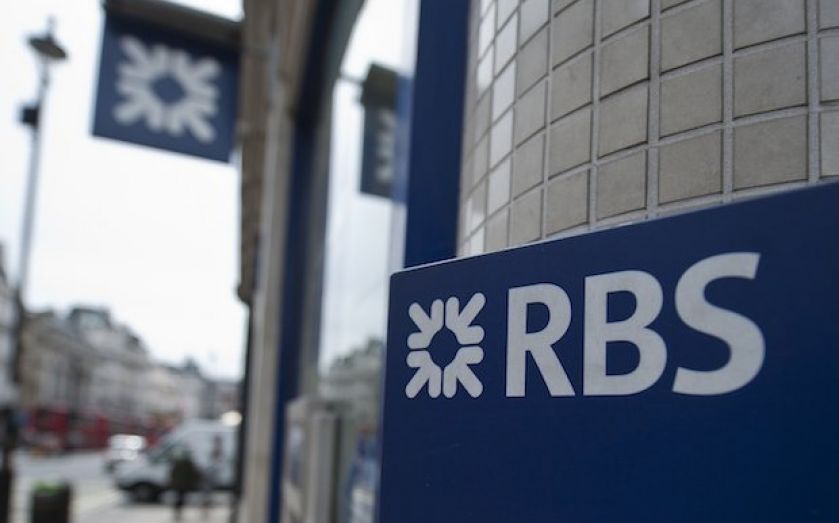£8.2bn loss confirms RBS’s uphill struggle

As expected, RBS has reported big losses this morning, as compensation and bad loans continued to plague the lender last year.
But results were even worse than expected, with a pre-tax loss of £8.2bn. Analysts had expected a loss of nearer £7bn. Deutsche Bank forecast £6.6bn.
Shares have slumped nine per cent on the news, trading at 322p.
The results mark the lender’s worst year since the height of the financial crisis. Last year, it posted a loss of £5.16bn.
It saw a full-year net loss of £8.5bn and a fourth quarter net loss of £8.6bn. Deutsche had expected a loss of £6.9bn for the year.
Revenues came in at £19.4bn, down 12 per cent (£2.4bn) year-on-year. Consensus was for £20bn.
Chief executive (CEO) Ross McEwan has called the results "sobering", adding that the bank "needs to do more to change".

Source: Google
Bonuses
Despite the losses, the 81 per cent government-owned bank said it’ll pay £576m in staff bonuses. That's down 15 per cent from 2012’s £679m, but will likely ruffle feathers.
Speaking on Radio 4’s Today Programme, McEwan defended the bonuses, saying he needs to be able to pay people "to do this job". He also stressed that workers are in demand, being "tapped on the shoulder" by other companies every day.
And when it comes to sticking to or exceeding the EU bonus cap, he said that no decision has yet been made.
Redress and regulation
£3.8bn was set aside as litigation, conduct and regulatory provisions in 2013, and £4.8bn of impairments and other losses were seen because of the creation of RBS’s internal ‘bad bank’.
Shrinking the bank
Today’s results set out the bank’s plan of action for improvement, stressing its push towards increased customer focus and shrinking the bank.
It’ll overhaul its existing operations – of which it has seven – into three businesses: personal, commercial and corporate.
It's also aiming to reduce its cost income ratio to approximately 55 per cent in the medium term, with a long-term target of 50 per cent.
When it comes to bringing down costs, it's targeting £8bn in the medium term, from £13.3bn in 2013.
In terms of its CET capital ratio, the lender’s looking to hit 12 per cent or more by the end of 2016, on a fully loaded Basel III basis. It fell to 8.6 per cent last year, versus Barclays' 9.3 per cent, Lloyds' 10.0 per cent and and HSBC's 10.9 per cent.
It also said it’ll shrink markets business more, reducing risk-weighted assets in its securities unit by £50bn by 2020.
McEwan: A bank people can trust
McEwan said the bank needs to rebuild the trust of its customer base, simplifying the way it operates and refocusing back into the UK.
He said that in the least-trusted industry, RBS is, unfortunately, one of the bank’s that’s not trusted, adding that different pricing – like better deals for new customers and not existing ones – needs to stop.
The last five years have been around refinancing and getting the capital position in a better place. Now it’s about trust and "good old banking", said the chief. He thinks it’ll take around three to five years to get to where the bank should be, but would like to see profits before that.
Of course, former CEO Stephen Hester notably said something very similar two years ago and, listening to McEwan today, many might feel like not much has changed.
McEwan said the length of time RBS’s recovery has taken has been a “real shock”. But he’s adamant that the bank’s in a much better capital position. When you take out the pre-crisis issues, he said, you’ve got a bank that’s making operational profit. In the fourth quarter of last year, that was £204m.
The focus now is regaining trust, he said. All well and good, but there's still the question of how – and when – that'll filtering into the bank's profits.
Scotland
Following Standard Life’s announcement this morning that a ‘yes’ vote in Scotland could see it move business out of the country, McEwan said RBS will obviously have to do its contingency planning, but there’s plenty of time to go. “I’d rather work on a fact-based situation”, he said.